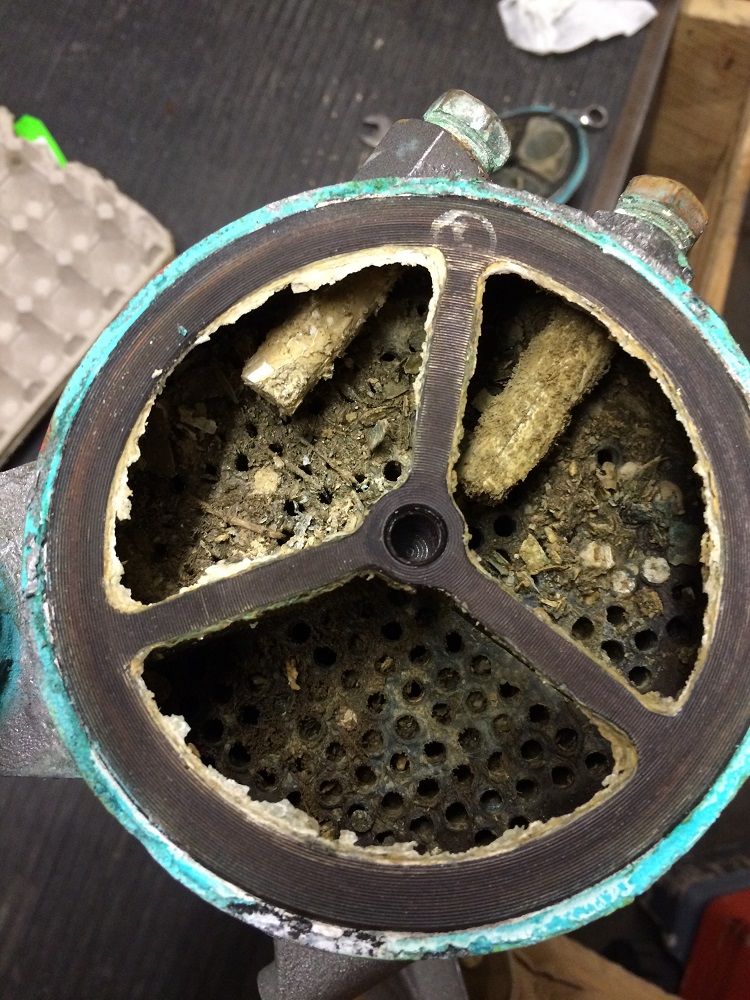This heat exchanger had about 10 years on it when I pulled it for cleaning. This is what I found.
When I pulled off the endcaps, it was much worse than I had imagined. The boat had been running at normal temperature at cruise RPM's. I estimate the heat exchanger was more than 80% blocked. Don't forget when looking at these tubes, the water passes back and forth 3 times and the tubes that look relatively clear in the bottom section of the picture are the exit end in one pass.

I choose to use distilled vinegar to clean the heat exchangers on my Yanmar. There are many commercial products out there that claim to be safe for your cooling system, but I am skeptical of most. A common product used and marketed for this use is Barnacle Buster. It may be safe when used as directed but in my estimation, the chemical which does the work (phosphoric acid) is a little hazardous to use. On the other hand, "distilled" cleaning vinegar which is 5-8% acetic acid is fairly safe and environmentally "green." It wont attack the cupronickel alloy like some harsher acids will. There are mechanics that use hydrocloric or muriatic acid, but that would scare me. Besides, theres nothing like physically seeing the condition of the cooling system parts to give you some peace of mind before doing any serious cruising. A complete table of chemicals compatible with copper and copper alloys can be had by clicking here.
A screen shot of the table showing 10% acetic acid and phosphoric acid (the main component of Barnacle Buster) is shown below as an example. According to the table, phosphoric is safe for copper nickel alloy (Cupro-Nickel) used in heat exchanger assemblies at low concentrations and low temperature, but it still makes me nervous about leaving it in there for extended periods without seeing what is really happening inside. I don't know for sure what copper alloys used in my heat exchanger or if unalloyed copper is used anywhere, and phosphoric acid is not recommended for copper. Vinegar cleans well and seems much safer. Below is a link to a youtube video of vinegar dissolving crud in my oil cooler on my bench at room temperature.
Click here for a link to see vinegar in action!


